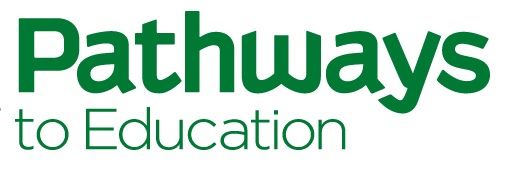When I think of the word “education,” I often see an image of confident young people walking across a stage, diplomas in hand, waving to their family and friends, and shaking hands with their teachers and principals. In short, my mind gravitates to the tangible and measurable outcomes of education, such as graduation. However, I also ask myself: Are young people ready for what lies ahead? Do they have the right life skills required to continue their journey into adulthood? Is that diploma they are so proudly holding in their hands sufficient evidence that they are career-ready?
In October last year, UK-based innovation foundation, NESTA, published a brief set of recommendations on the future of work. The authors argue that technological progress and demographic changes will likely result in millions of people being “trapped in insecure, low-value, low-pay employment—or worse, forced out of work altogether.” One of its recommendations is of particular relevance to those working with youth: “To help young people to prepare for uncertainty around future employment, the education system must teach a much wider range of skills, including social and emotional skills and creativity.”
Pathways to Education has been focusing on the development of social and emotional skills since its inception in 2001. Pathways promotes educational attainment and positive youth development through a balanced combination of academic, financial, social, and one-on-one supports. While the programmatic focus has always been on helping youth living in low-income communities to graduate from high school, our comprehensive, wrap-around program is also contributing to competency development, resilience, and career-readiness.
And our recent research suggests that young people in the program are in fact developing the types of skills and competencies highlighted in the NESTA report. Take self-regulation for example—the ability to control and adjust emotions, thoughts, and behaviours to reach a personally meaningful goal. Also referred to as self-management, this skill helps build resilience and makes it possible for young people to strengthen their ability to focus and develop positive habits. What we’ve found in our research is that the longer students stay in the Pathways Program, the higher they score on measures of self-regulation, academic persistence, sense of well-being, and optimism for the future.

Why does that matter? Well, imagine a student growing up in an environment of socio-economic disadvantage, someone who does not have a lot of social capital or positive role models to look up to. Now, imagine that, on encountering a difficult situation, instead of giving up or believing she has no control over her circumstances, she says: “If my preferred way of dealing with this challenge no longer works, I will try another way.” Imagine her saying “If at first I fail, I will ask for help.”
This is not a competency you develop in Advanced Algebra or Extended French. Instead, you develop it through meaningful, lasting relationships with adults who care, in environments where your voice and experience matter, where the culture of high expectations reminds you—day after day—that, yes, you can and will succeed. The young woman in the example above is exhibiting competencies that indicate adaptability, an ability to self-manage, and a growth mindset—a belief that her abilities grow with her efforts, and that whatever obstacles are in her way are not a result of who she is or where she is from. They are only temporary barriers that she can overcome.
This example reflects the attitudes of thousands of Pathways graduates who finish high school and move on to fulfill their dreams, often against challenging odds. These students exemplify the multi-faceted impact of the Pathways Program—a lasting impact that will continue to contribute to successful outcomes throughout their lives.

Konrad Glogowski, Ph.D.
Director, Research and Evaluation
Pathways to Education Canada
As the Director of Research and Evaluation, Konrad is a champion for our commitment to excellence through evidence. He leads a team who systematically and rigorously gathers relevant data to monitor and measure our program’s performance and overall impact. He is also responsible for implementing our national research and knowledge mobilization strategy, including research to help us better understand educational attainment and youth well-being programs and approaches, both at home and abroad. Konrad holds a Ph.D. degree in education from the Ontario Institute for Studies in Education of the University of Toronto, with a focus on adolescent development and learning.
